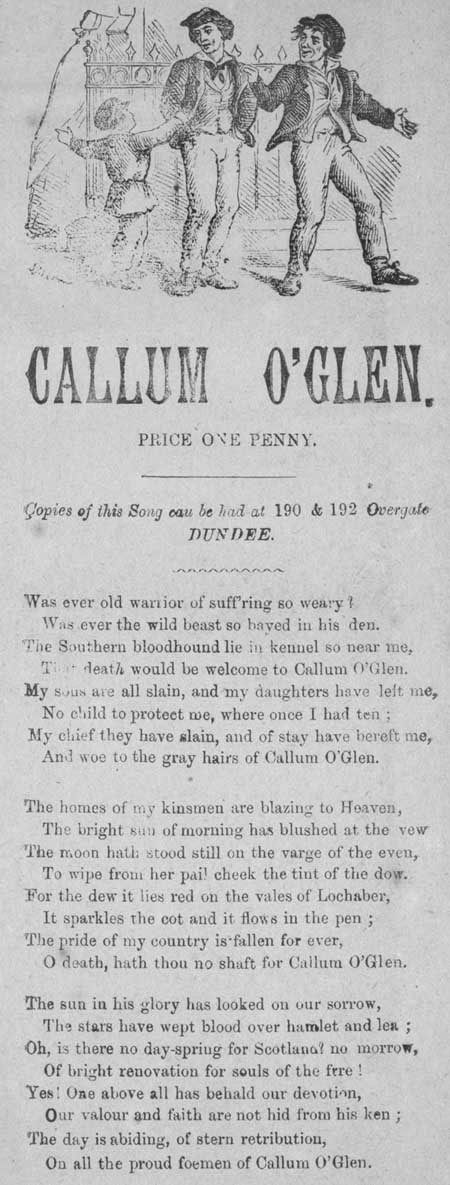
 |
| home | background | illustrations | distribution | highlights | search & browse | resources | contact us |
Broadside ballad entitled 'Callum O' Glen' |
CommentaryThis ballad begins: 'Was ever old warrior of suff'ring so weary? / Was ever the wild beast so bayed in his den. / The Southern bloodhound lie in kennel so near me, / That death would be welcome to Callum O' Glen.' The song was published at 190 and 192 Overgate, Dundee, probably by the Poet's Box, and priced one penny. This ballad is narrated by an old Highland soldier, and appears to be set in the aftermath of one of the Jacobite uprisings of the eighteenth century. The narrator refers to his sons having been killed and the homes of his kinsmen having been burnt. This suggests that the ballad is referring to the 1745-6 uprising, which provoked harsh reprisals against Highland Jacobites by the Duke of Cumberland's men after the decisive battle at Culloden. The cruelty is recalled in the poignant image, 'For the dew it lies red on the vales of Lochaber'. It is not clear what the connection between the different Poet?s Boxes were. They almost certainly sold each other?s sheets. It is known that John Sanderson in Edinburgh often wrote to the Leitches in Glasgow for songs and that later his brother Charles obtained copies of songs from the Dundee Poet?s Box. There was also a Poet?s Box in Belfast from 1846 to 1856 at the address of the printer James Moore, and one at Paisley in the early 1850s, owned by William Anderson. Early ballads were dramatic or humorous narrative songs derived from folk culture that predated printing. Originally perpetuated by word of mouth, many ballads survive because they were recorded on broadsides. Musical notation was rarely printed, as tunes were usually established favourites. The term 'ballad' eventually applied more broadly to any kind of topical or popular verse.
|
Probable period of publication:
1880-1900 shelfmark: L.C.Fol.70(87b)

|